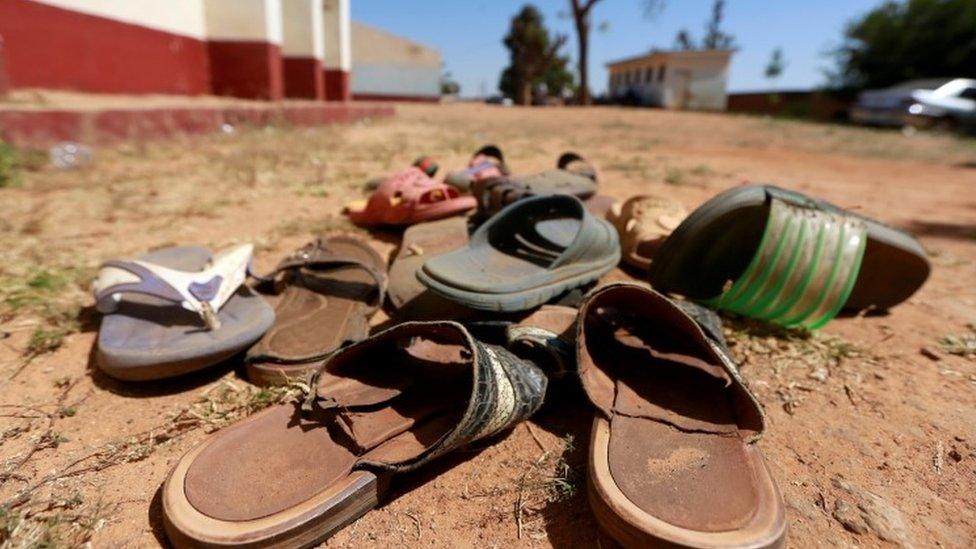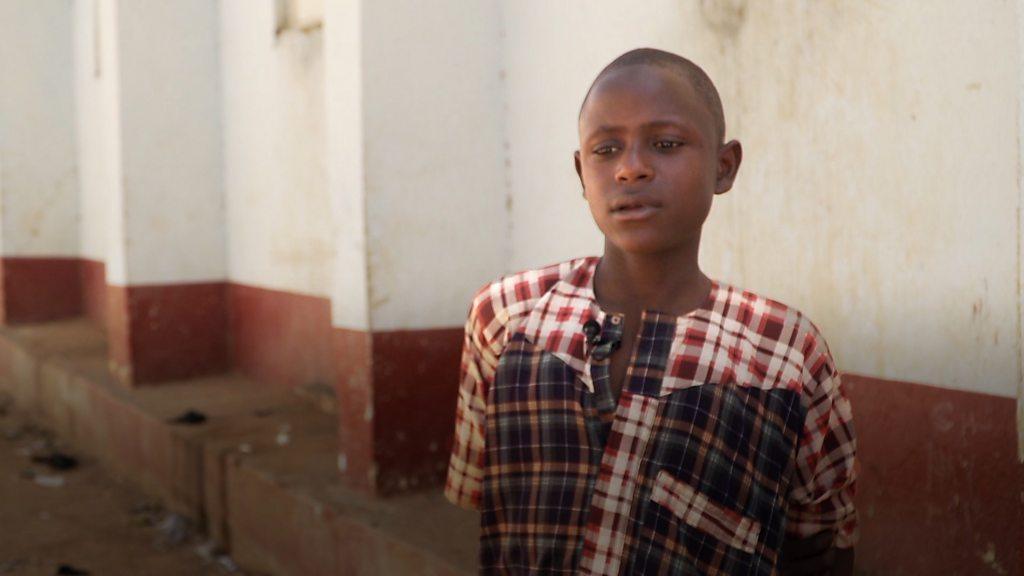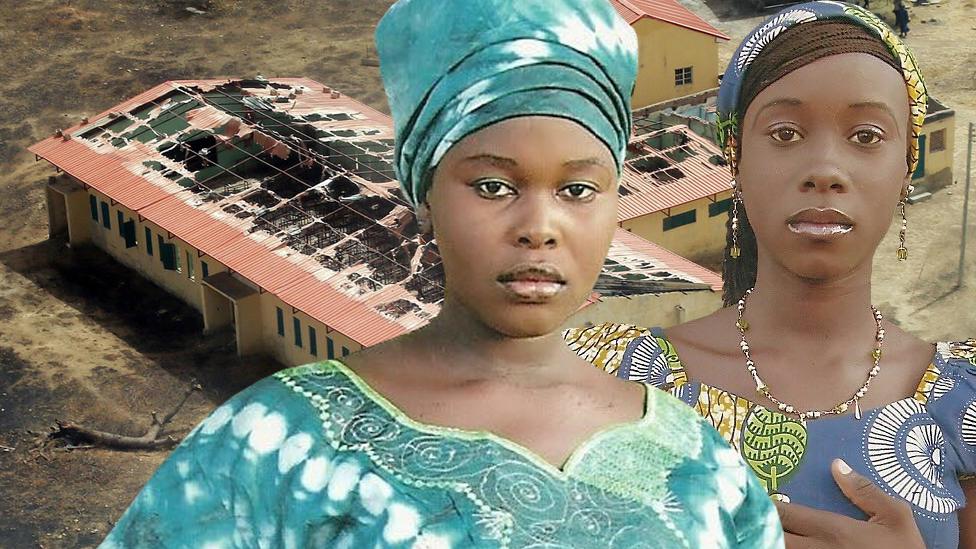Nigeria school attack: Hundreds of boys freed, local authorities say
- Published
Abdulhadi Abubaka describes how he managed to the mass kidnapping in Nigeria's Katsina school.
Hundreds of schoolboys kidnapped last week from a boarding school in north-western Nigeria have been released, local authorities have told the BBC.
A spokesman for the governor of Katsina state said 344 had been freed and were all in a good condition.
However, other reports suggest some remain in the hands of their captors.
The attack was claimed by the Islamist militant group Boko Haram, which hours earlier released a video apparently showing some of the boys.
In his statement, the spokesman, Abdul Labaran, said the boys were being taken to the regional capital Katsina City, and would soon be reunited with their families.
He said the clip released by Boko Haram was authentic, but a message seemingly from the group's leader Abubakar Shekau was, instead, by an impersonator.
The authorities have previously given a lower figure than locals for the number abducted and it is unclear if all are now safe.
The state Governor Aminu Bello Masari was quoted by Reuters news agency as saying, "we have recovered most of the boys. It's not all of them," while a security source told the AFP news agency some remained with their captors.
Mr Labaran said none of the kidnapped boys had been killed, contradicting a boy shown in the video who said some had been killed by Nigerian fighter jets.
It is unclear how the boys' release came about but the news was confirmed to BBC Hausa by another state government official.
They were found in a forest near the town of Tsafe, in neighbouring Zamfara state.
What happened during the attack?
Witnesses said armed men came to the school in Kankara town on Friday evening last week, and many students jumped the school fence and fled when they heard gunshots.
Others were tracked by the gunmen, who tricked them into believing that they were security personnel, students who escaped said. Once the students were rounded up, they were marched into the nearby forest by the armed men.

Students left their footwear behind in the scramble that followed the attack
On Thursday, video was released bearing Boko Haram's emblem, showing dozens of boys, some of whom appear to be very young.
One of the boys said they were kidnapped by Boko Haram leader Abubakar Shekau's group and that all the government troops who had been sent to help them should be turned back.
What's the wider picture?
Boko Haram has become notorious over the last decade for school kidnappings, including one in Chibok in 2014, when nearly 300 schoolgirls were seized. The group's name loosely translates as "Western education is forbidden".
However, these abductions have until now taken place in north-eastern Nigeria, where Boko Haram is based.


Despite Boko Haram's claim, the Nigerian government said the Katsina abduction was carried out by local gangs connected to the Islamist group.
Armed attacks and kidnappings are rife in north-western Nigeria and are often blamed on bandits, a loose term for gangs operating in the area.
Amnesty International says more than 1,100 people were killed by bandits in the first six months of this year, with the government failing to bring the attackers to justice.

You may be interested in:
Related topics
- Published14 December 2020

- Published14 April 2016
